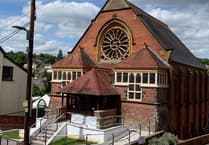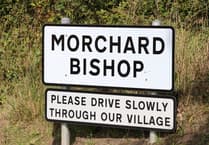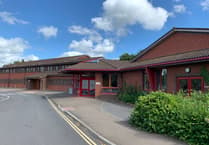THE service at Crediton Methodist Church on Sunday, July 28 was led by Rev Barbara Greenwood and her theme was “What is God Like?”.
Barbara showed a carving she had bought in Kenya which depicted Jesus with African features. We saw a photo of a white, blue eyed Robert Powell in “Jesus of Nazareth”.
We know that Jesus was Middle Eastern and would not have been white with blue eyes. In any culture in the world where Christianity has reached you will find representations of Jesus looking like local people.
So, what does God look like? God does not look like human beings. God became human so that He was more approachable and understandable by us. What type of human did God become? It is inaccurate for God to be Middle Eastern Semitic just as it is for God to be white European or African.
When you ask what a person is like and you get a physical description. You hopefully get something about their personality, their likes, dislikes and behaviour.
So, what Jesus looks like is not important. What is important is the things He did, what He said, His attitudes, the way He taught and treated people.
What is important about God is the entirety of God, is His love, His mercy, His generosity. Even when we name these characteristics we are only scratching the surface. We do not really know what God is like and we will not determine that until we meet Him face to face.
Barbara had visited the ruins of the Roman city of Ephesus. When St Paul visited it was the heart of the worship of the goddess Artemis.
There would have been many workshops making and selling statues of Artemis. When Paul preached that there was only one God and His son Jesus, the economy would be ruined and Paul was beaten and run out of town.
Many years later when Paul was in prison for preaching, he wrote to the church in Ephesus – a church that was growing but still embattled by locals who were hostile.
He prayed that they may be strengthened in their inner being. Whatever may be happening in your life, there is a source of strength which means you will not be overcome. We need to pray that for ourselves and one another.
Paul prays that you may know the height, breadth, length and depth of the love of God which is in Christ Jesus; knowing how deep God’s love is – it never ends and can never be driven away by anything that we do; knowing that God’s love does not depend on us being successful or clever or popular; knowing that God will never abandon us.
Paul sent his prayer to the Ephesians because they were embattled people and they needed to hear that. Embattled people across the centuries still need to hear that and may be if you personally or as a group are feeling embattled, you need to hear that.
In the reading from John we heard of the feeding of the 5,000 and Jesus walking on the water. It is normal in the gospel of John that these stories have multiple meanings. The passage talks about signs Jesus did and they are signs of Jesus’ divinity.
In the introduction to the feeding of the 5,000, it says Passover of the Jews was near. So, the feeding of the 5,000 is John’s way of doing the last supper because he does not talk about it like Matthew and Luke do. There is emphasis on bread which represents Jesus’ body and there are 12 baskets of left-overs representing the 12 tribes of Israel.
So, what is our headline of this passage? ln the beginning God created heaven and earth from nothing. Here, in this story, Jesus had five loaves and two fish – just a meagre offering from the little boy – and He used it to feed a huge crowd.
The message is that God works through us. God uses whatever we are willing and able to offer and does amazing things with it. The Kingdom of God is nothing more and nothing less than God’s power and wisdom working through human beings with what we are able to offer.
What can we offer? We can offer what we have – whether that is much or little; whether we think it is prestigious and useful or insignificant – we offer what we have and God does with it what He will.
We can offer our time, energy and effort, our money, our willingness to change, courage to face unpalatable truths. These are all things we can offer to God.
God is unchanging but God does not stand still. God is dynamic. As society and cultures change, the gospel needs to be seen with new eyes, translated into new language and new forms and contemporary versions.
The Methodist Church, and all churches, face challenges – people do not think and behave as they used to. That is a challenge to us. Paul wrote to the Ephesians because he feared they would become disheartened and stop being Christians. Discouragement does not have to be terminal. We can use discouragement as a prompt to ask the question “why is it things are not working for us?”.
Barbara spoke of several churches who had come back from the brink of closure. The common features in churches that have grown is that they had a time of struggle and of being discouraged but underwent a deep change that was difficult and painful but they prayed a lot.
So, back to St Paul’s prayer for the Ephesians, Barbara prayed that we would be strengthened in our inner selves through the Holy Spirit and that Christ will dwell in our hearts through faith; that we are rooted and grounded in His love and that we may feel the power to understand what is the breadth, length, height and depth of the love of God and know that love which surpasses knowledge so that we may be filled with the abundance of God.
Bronwyn Nott





Comments
This article has no comments yet. Be the first to leave a comment.